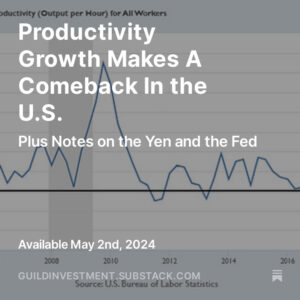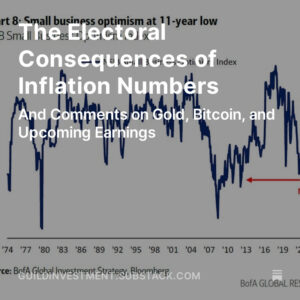The War For AI Tech Talent — and How the U.S. Is Winning It
In early July, as reported in the Financial Times, a group of British computing scientists decamped to Silicon Valley to form a new quantum computing startup, PsiQ. Quantum computing, as our regular readers will recall, is a computing technology that seeks to exploit aspects of quantum mechanics in order to build computers that are orders of magnitude more powerful than anything currently available. When and if fully functional quantum computers are built, they will reshape all the flagship technologies of the “third industrial revolution” — especially artificial intelligence and machine learning. The CEO of PsiQ, Jeremy O’Brien, was educated in Australia, and then spent 12 years as a professor of physics and engineering at the University of Bristol in the UK, heading the Center for Quantum Photonics. (PsiQ’s approach is to use photons, rather than electrons, to build the “qubits” that are quantum computing’s answer to classical transistor architecture.) Many of his colleagues at PsiQ were also British academics.
We’ve written before (back in 2015) about the positive academic technology environment in many British universities (leading to tech clusters with monikers like “Silicon Glen” and “Silicon Fen.”) So why did this group of cutting edge researchers leave for the U.S., and why do we think it’s important?
How the U.S. Has Networked the World’s Scientists
One simple answer is that there is more capital available in the United States for would-be entrepreneurs making the leap from the academy to the marketplace, because that financial capital understands the real value of intellectual capital in a world where growth is increasingly driven by technology. U.S. financial capital also exists in a legal, political, and cultural framework that is favorable to its development, and fundamentally hospitable to the human capital that it attracts. This process has been underway for decades, and the U.S. has already built up a formidable lead — indeed, one that may now be close to insurmountable.
PsiQ secured funding from a venture firm founded by the creator of Android, Andy Rubin. Rubin himself sold Android to Alphabet [NASDAQ: GOOG] in 2006, a move which in hindsight was crucial to GOOG’s role as an enduring tech heavyweight. Rubin has since mentored and incubated several startups which have ended up being acquired by U.S. tech giants such as Amazon [NASDAQ: AMZN].
Big tech’s competitive landscape has highlighted network effects that can become intensely favorable to big incumbents. A company whose network gets past a tipping point can create very difficult barriers to competition; in essence the network itself becomes a moat.
“Winner Take Most” In the Talent War
A similar dynamic seems to be at work in the war for tech talent, and it is abetted by the small pool of really top-level talent in critical disciplines. Those U.S. firms who can afford to win the bidding war for this talent secure it, and in securing it, they intensify the tech status of the U.S. It becomes a destination where both financial reward and the excitement of collegial cooperation and competition are lodestars for a global intellectual and entrepreneurial elite.
How small is that pool? Take the case of artificial intelligence as an example. While there many be hundreds of thousands of scientists working on AI, most of them are the equivalent of “manual laborers” — they are not the ones making critical developments and innovations. A 2018 analysis using sophisticated data scraping from LinkedIn and analyzing academic conferences concluded that worldwide there are really only about 20,000 PhD-level AI scientists. Of these only about 3,000 are currently open to employment. Closer analysis suggests that only a quarter of these are really capable of top-tier work in which cutting-edge academic research is bridged to an engineering environment where it can effectively be put to work.
All of this is to say that the competition for real AI talent — the talent that will shape the new world AI makes possible and will fuel the growth of the world’s leading tech companies — is incredibly fierce. (Note to young readers: if you’re STEM-inclined, consider a PhD in an AI-related field.)
This competition is why U.S. tech leaders and venture capitalists are willing to pay so richly to acquire promising AI startups or lure them to American soil. Often (as when GOOG bought UK AI startup DeepMind) it’s not so much the company itself, as the instant acquisition of its entire workforce, that really drives the decision. This is why critical tech talent from around the world ends up coming to the U.S. — and bolstering this country’s leading tech firms in their global dominance even further.
Investment implications: Globally, competition for critical tech talent is incredibly fierce– especially for academic entrepreneurs at the cutting edge of critical disciplines such as AI. The U.S. is winning that competition, because U.S. tech firms and venture capitalists have long understood its vital importance. Now, as global leaders, U.S. firms and funds are more able than ever to attract foreign talent, both because they can offer greater financial rewards, and because the U.S. academic, financial, and entrepreneurial environment is so hospitable compared to the more constricted and regulated environments elsewhere. Dominant U.S. tech firms are likely to continue winning this talent war in years to come, and that will provide them with a long-term tailwind.







